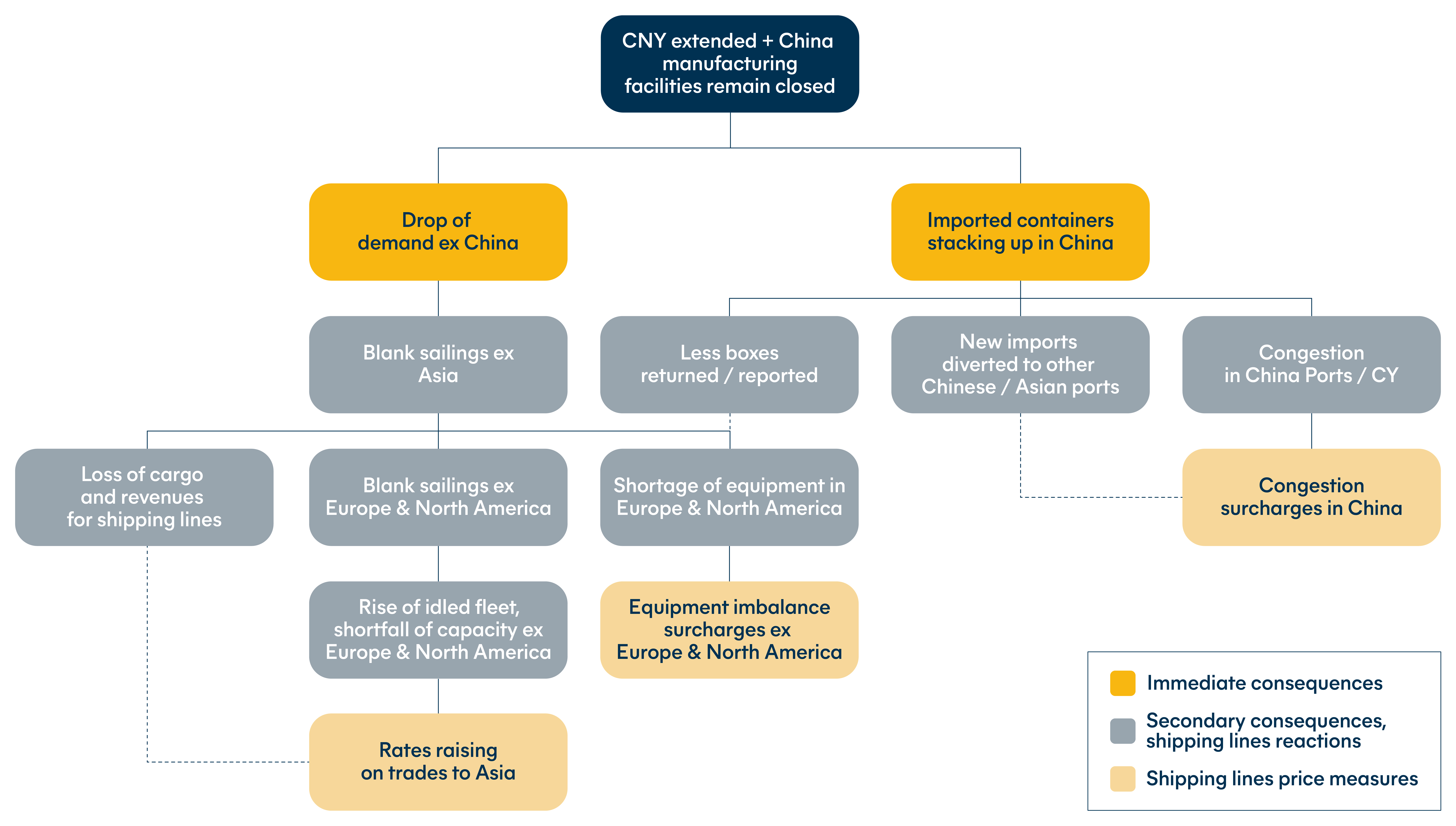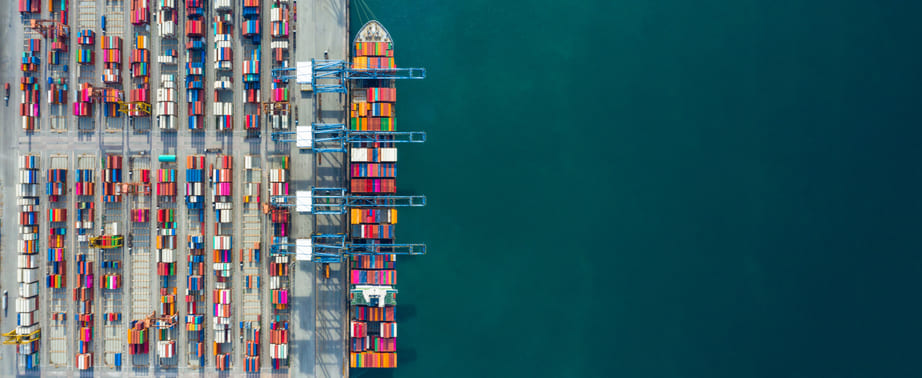Understand the implications of coronavirus in freight shipping
The coronavirus outbreak has implications in container shipping flows and global supply chains. The inability of Chinese manufacturing facilities to reopen after Chinese New Year festivities has created an shortfall in global Chinese exports and a resulting drop in container volumes, starting first with European and American trade routes.
Through a series of domino effects, Covid-19 has had repercussions on the shipping industry way beyond China. Logistics throughout the world now are facing reduced available capacity, pressure on equipment availability, possible congestion in specific ports and extra related costs and congestion surcharges.

While it is impossible to predict the duration of the current situation and the impact of new cases across the world, expectations ahead for container freight shipping are very uncertain.
As a result of falling demand, the total capacity withdrawn from the sea freight reached 1,7m TEUs. Within just a few weeks, carriers have cancelled in excess of 100 sailings, equaling 45% of the capacity between Europe and Asia and the transpacific region.
Whether the coronavirus continues to expand and demand does not improve, or if the Covid-19 gets contained, Chinese factories eventually reopen and volumes will surge. The time it takes ocean carriers adapt and adjust capacity implies disruption will continue for a while before it returns to “normal”.
In that context, we expect disruption will continue for the weeks ahead. At Hillebrand we are following the situation closely and working constructively with our partners to achieve the best solutions to minimize the impact on our customers’ supply chain.
How can Hillebrand support you in this situation?
We encourage you to cover your products with a shipping insurance, to ensure your peace of mind and be prepared to face any unexpected situation.
When possible, consider alternative solutions such as intermodal freight solution, rail from Europe to Asia or airfreight for urgent orders.
We understand the risks for your goods if delays occur at ports with high temperatures. In a situation of temperature-controlled containers shortage, we can help protect your wines and beers with our insulation liner which reduces temperature contrast to an average of 8-11 degrees*.
Hillebrand has over 50 warehouses in main wine producing and beverage consumptions areas, where you can store your beverages and goods safely with our temperature-controlled facilities.
Contact us if you have any questions about your freight shipping in relation to coronavirus.

.png?sfvrsn=cb1fc0fd_1)



